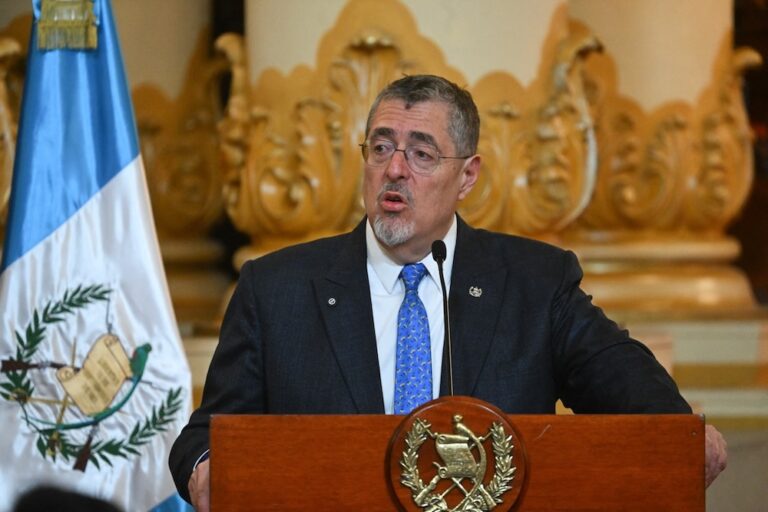(APG/IFEX) – Since 24 October 2007, journalists Enrique Castañeda and Hilda Mérida, of the morning newspaper “El Periódico”, have been receiving death threats. They believe the threats are in response to an investigation they have been carrying out in recent weeks of members of the Patriot Party (Partido Patriota, PP) who have been publicly linked […]
(APG/IFEX) – Since 24 October 2007, journalists Enrique Castañeda and Hilda Mérida, of the morning newspaper “El Periódico”, have been receiving death threats. They believe the threats are in response to an investigation they have been carrying out in recent weeks of members of the Patriot Party (Partido Patriota, PP) who have been publicly linked to organised crime in the country. The PP’s candidate for the presidency, General Otto Pérez Molina, is competing in the run-off election scheduled for 4 November.
According to the two journalists, some members of the PP have engaged in illegal activities such as the embezzlement of government funds. When the journalists had completed their investigation and were about to publish their findings, the newspaper’s director decided not to publish their piece, but asked them for a draft of their report. The journalists are concerned because the newspaper’s editing vice-president, Mario Fuentes Destarac, reportedly stands to be appointed to a high-ranking government post should the PP win the elections.
After turning over the draft report to the director, the journalists began to be followed by vehicles and they have also received telephoned death threats, warning them not to publish the information from the investigation. They are particularly alarmed by the fact that the newspaper’s directors have not given them any support to deal with the threats and surveillance.
Castañeda and Mérida have filed a complaint regarding the death threats with the Attorney General for Human Rights.
APG is alarmed about these death threats and urges the authorities to protect the journalists receiving them. It also believes it useful to make this situation known to the international community as a way of protecting the journalists receiving the threats, given that international pressure resulting from such public disclosure may discourage those involved in organised crime from committing offences that are even more serious.


